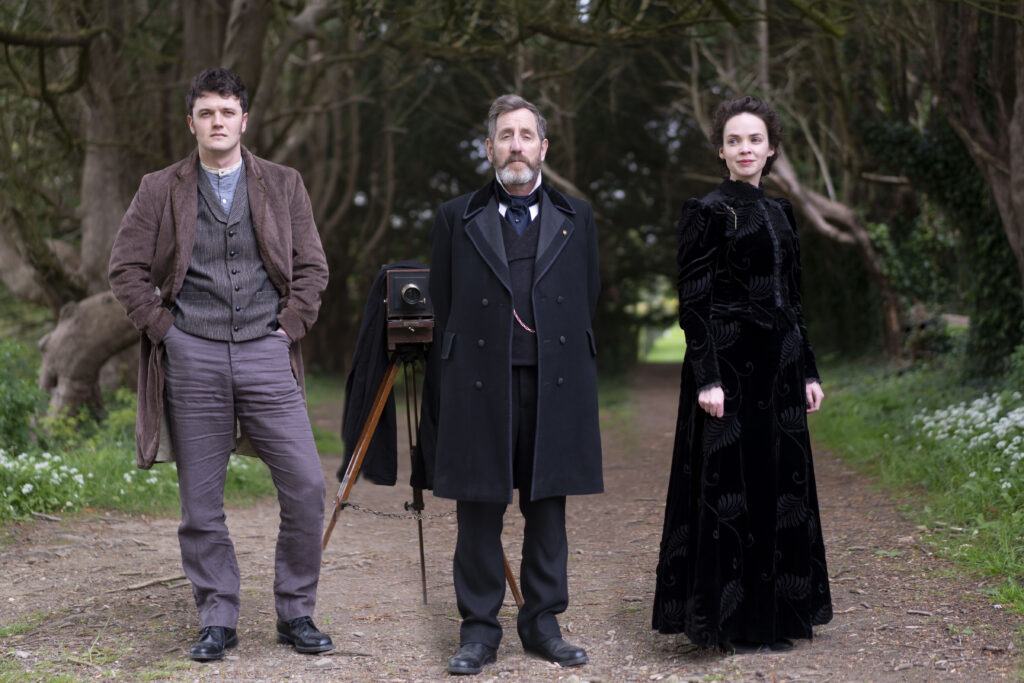Pictures carry a degree of disposability in the modern era. Selfies on Instagram or Snapchat can disappear into the void not long after they’re taken. Set in Ireland during the 1880s, Acorn TV’s new drama Dead Still captures an era back when photographs were still a valuable commodity, a luxury that few could afford.
The show follows Brock Blennerhasset (Michael Smiley), a memorial photographer who makes his living taking pictures of the recently deceased. A practitioner of the daguerreotype process, which uses steel plates to capture photographs, Blennerhasset finds himself in an era that is rapidly evolving, with cheaper and easier methods hitting the market. Accompanied by his niece, Nancy Vickers (Eileen O’Higgins), and gravedigger-turned-assistant, Conall Molloy (Kerr Logan), Brock goes about his business as a broader conspiracy involving the illicit photograph trade begins to ensnare him.
Dead Still owes its success to the delightful chemistry between Smiley, O’Higgins, and Logan. The three are absolutely marvelous to watch, elevating each other in practically every scene. Smiley brings an understated dry wit to Blennerhasset that’s well complemented by the more affectionate Nancy and Conall. The show makes a compelling case for why they’re drawn to each other, outcasts who find community in their rather peculiar line of work.
O’Higgins often sets the tone for the narrative, working wonders as the show’s sole primary female character. Nancy is maybe a bit more modern than period drama purists might like, but O’Higgins exudes such emotion in each scene that it’s practically impossible not to like the character. Dead Still looks like the kind of show that’s a lot of fun to work on, with a sense of joy that permeates through the screen.
The show finds a good balance between drama and comedy, frequently using humor to lighten the dark aesthetics. Blennerhasset’s coachman Cecil (Jimmy Smallhorne) is quite amusing, though Smallhorne brings a surprising amount of depth to the character. Dead Still makes great use of the Irish landscape, frequently giving the eyes plenty to feast on with its emphasis on old architecture.
The six-episode season mostly utilizes serialized storytelling, though the front half is a bit more self-contained. The narrative bites off a bit more than it can reasonably chew in six episodes, emphasizing world-building and character development over pacing of the narrative. This approach works pretty well, endearing the characters to the audience while leaving plenty of hunger for more. The season could’ve easily gone on for another four episodes.
Dead Still is way more fun than you’d expect from a period drama about photographing the recently deceased. The acting is superb and the production values are top notch. Acorn TV has a gem on its hands, hopefully one that has a second season in the works.
The entire six episode first season was screened for review.
















